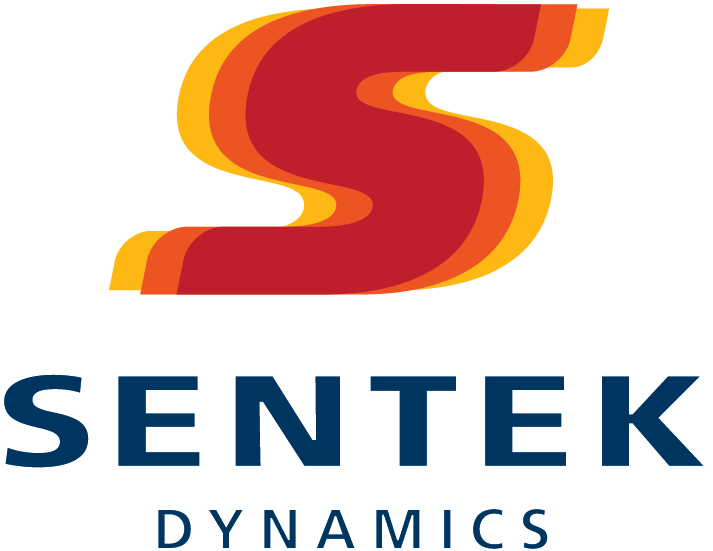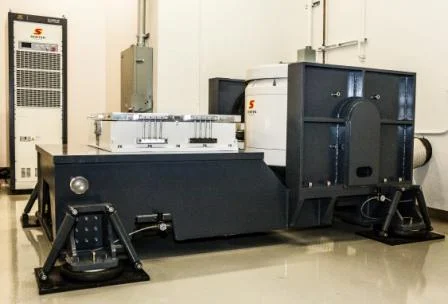It is crucial to ensure that none of the engine components have any resonances that lie within the optimal rpm operation range. If any of the parts have certain structural dynamics in the range of operation, then the vibration and noise particularly at resonant frequencies can be dangerous and unpleasant. For example, if the combustion from the engine or the engine rpm matches any component’s natural frequency, the resonance phenomenon creates an undesirable effect. Thus, it is important to obtain a frequency signature of the engine to ensure an optimal tuning range.
To acquire FRFs of an engine, it is hung with bungee cords to imitate free-free boundary conditions. Two modal shakers were used to excite the V6 engine block. Shaker excitation provides better consistency and repeatability than a modal hammer. It also produces a cleaner data set because of a greater average. Multiple sensors are roved through the engine to obtain the vibration characteristics.
Random excitation imparts energy across a broad frequency range of 1.8 kHz. A Hanning window is implemented to minimize the leakage. A block size of 4096 is selected. A fine frequency resolution of 0.976 Hz is produced with these configuration settings. For this test, the output amplitude was set to 0.2 V. Measurements of higher accuracy and reduced noise are obtained by linearly averaging 16 blocks of data at each measurement DOF.
The FRF measurement shows good dominant peaks in the 440-1800 Hz frequency band. Overlapping the measured FRFs, several modes can be identified. The good alignment of these peaks indicates good measurement results, and no mass loading effect was induced.
This information can be used to optimize the design and change the mechanical properties. The results can also be used to fine-tune the optimal rpm range of operation for the engine.
The results demonstrate the strength of the Spider-80X DAQ system and the efficiency of EDM Modal software to execute sophisticated modal tests on intricate structures.
To learn more about EDM Modal software, visit: www.crystalinstruments.com/structural-testing





